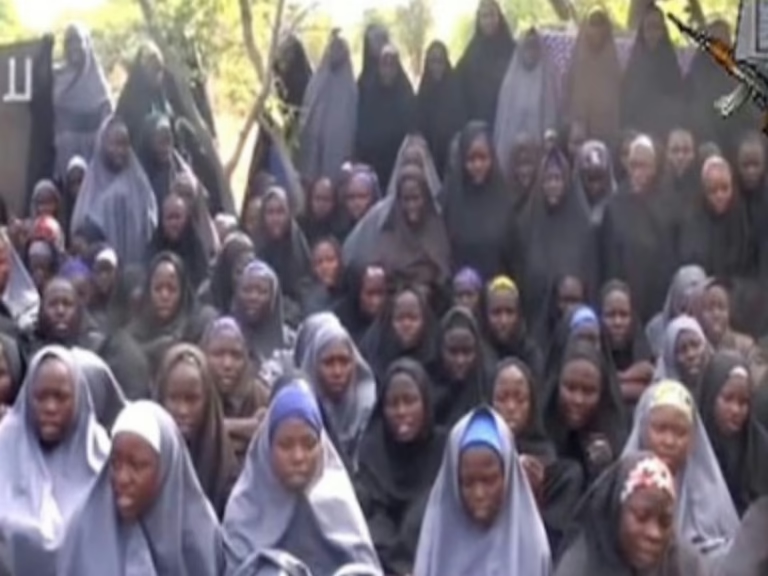According to a recent report by the United Nations Committee on the Elimination of Discrimination against Women (CEDAW), 91 schoolgirls abducted from Chibok remain either in captivity or unaccounted for, even ten years after the initial kidnapping.
The report highlights that many survivors continue to suffer from psychological trauma and social exclusion, with minimal access to necessary support systems.
This comprehensive inquiry was published following a confidential two-week mission to Nigeria in December 2023, during which the CEDAW team conducted evaluations in Abuja and several states including Adamawa, Borno, Enugu, and Kaduna.
“Our findings reveal ongoing, severe violations of women’s and girls’ rights linked to the mass abductions,” the report states. “The Nigerian government bears responsibility for these persistent and systematic breaches.”
The experts emphasized the urgent need for interventions to halt torture and mistreatment of abducted individuals.
School officials noted that this was the first UN delegation to visit Chibok Government Secondary School since the 2014 kidnappings.
In Abuja, the delegation engaged with key figures including the Director of the Women Development Department and the Director of Defence and Security, as well as representatives from the National Agency for the Prohibition of Trafficking in Persons, the Nigerian Armed Forces, and the Police Service Commission.
The team also visited an internally displaced persons (IDP) camp in Abuja, where they interviewed victims abducted by Boko Haram and other groups involved in ransom kidnappings.
The inquiry initially focused on the 2014 Boko Haram abduction of 276 girls from Chibok Secondary School in Borno State. Of these, 82 escaped independently, and 103 were released in small groups between 2016 and 2017 through prisoner swaps.
However, at least 91 girls remain missing or are still held captive.
Beyond the Chibok case, the investigation also covered abductions by other armed factions in subsequent years, many involving ransom demands.
Nahla Haidar, Chair of CEDAW, remarked, “The Chibok abduction was not an isolated incident but part of a broader pattern of mass kidnappings targeting schools and communities across northern Nigeria.”
“While earlier attacks had occurred, Chibok was the first to attract widespread international attention, marking the start of a decade-long crisis of mass abductions.”
Haidar further noted, “Since then, over 1,400 students have been kidnapped, often subjected to ransom, forced marriages, trafficking, or used in prisoner exchanges.”
She added, “The state’s repeated inability to safeguard schoolgirls and other women from abduction constitutes grave and systematic violations.”
The report details the brutal conditions endured by captives under Boko Haram and other armed groups, including inadequate food, physical abuse, forced religious conversion, and coerced marriages. Some girls even gave birth while in captivity.
“Survivors abducted for ransom faced extreme sexual violence, frequently enduring repeated assaults by multiple perpetrators,” the report reveals.
Post-release experiences varied significantly. Those who escaped independently often faced rejection and stigma in their home communities due to associations with Boko Haram.
Many of these survivors reportedly lacked access to rehabilitation, counseling, or education.
Conversely, the 103 girls freed through government negotiations received psychosocial support and training in Abuja, with several awarded scholarships at the American University of Nigeria and abroad.
“The whereabouts of the remaining 91 girls remain unknown, as government efforts to negotiate their release have ceased,” the report states.
Survivor testimonies underscore not only the trauma endured during captivity but also the significant obstacles faced upon reintegration. Many were abandoned without adequate care, including those residing in IDP camps.
“Families were often impoverished after exhausting resources to pay ransoms,” Haidar added.
The Committee concluded that Nigerian authorities failed to prevent targeted attacks on educational institutions and communities, protect girls from abduction, and uphold their right to education.
It also criticized the government for not addressing the stigma faced by survivors, particularly those who were raped and their children.
Moreover, the state has yet to criminalize abduction and marital rape uniformly across all 36 states.
CEDAW urged Nigerian authorities to intensify efforts to rescue the remaining 91 Chibok girls and all other abducted women and girls held by Boko Haram and other armed groups.
The Committee also called for increased funding and resources for the Police Force to better protect women and girls from mass kidnappings.
The full inquiry report, including detailed findings and recommendations, is now accessible online.























0 Comments